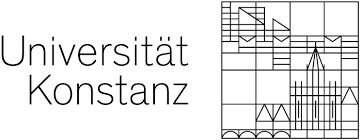预约演示
更新于:2025-09-09

Universität Konstanz
更新于:2025-09-09
概览
标签
肿瘤
泌尿生殖系统疾病
小分子化药
化学药
疾病领域得分
一眼洞穿机构专注的疾病领域
暂无数据
技术平台
公司药物应用最多的技术
暂无数据
靶点
公司最常开发的靶点
暂无数据
| 排名前五的药物类型 | 数量 |
|---|---|
| 小分子化药 | 1 |
| 化学药 | 1 |
关联
2
项与 Universität Konstanz 相关的药物靶点 |
作用机制 KIF18A抑制剂 |
在研适应症- |
非在研适应症- |
最高研发阶段临床前 |
首次获批国家/地区- |
首次获批日期- |
靶点 |
作用机制 PSMB8抑制剂 |
原研机构 |
非在研适应症- |
最高研发阶段临床前 |
首次获批国家/地区- |
首次获批日期- |
14
项与 Universität Konstanz 相关的临床试验DRKS00035990
Therapeutic alliance research utilizing physiologic synchrony in therapy - TRUST
开始日期2025-04-01 |
申办/合作机构 |
DRKS00034963
A Therapist Guided Online-Intervention for Children with Avoidant/Restrictive Food Intake Disorder and Their Caregivers
开始日期2024-10-07 |
申办/合作机构 |
DRKS00033410
Effect of a stepped care trauma rehabilitation program for refugees in Germany: A naturalistic parallel group trial with post-implementation randomization
开始日期2024-02-12 |
申办/合作机构 |
100 项与 Universität Konstanz 相关的临床结果
登录后查看更多信息
0 项与 Universität Konstanz 相关的专利(医药)
登录后查看更多信息
12,641
项与 Universität Konstanz 相关的文献(医药)2025-12-31·European Journal of Psychotraumatology
Predicting the outcome of psychological treatments for borderline personality disorder and posttraumatic stress disorder: a machine learning approach to predict long-term outcome of Narrative Exposure Therapy vs. Dialectical Behavioral Therapy based treatment
Article
作者: Kaiser, Tim ; Steuwe, Carolin ; Blaß, Jakob ; Iffland, Benjamin ; Elbert, Thomas ; Herzog, Philipp
Background: A comorbidity between Borderline Personality Disorder (BPD) and Posttraumatic Stress Disorder (PTSD) is common, severely disabling, and hard to treat. The choice of an optimal psychotherapy based on patient characteristics remains challenging.Objective: This study develops models to predict the outcome of two psychotherapies for comorbid BPD and PTSD.Method: Data from two trials comparing Narrative Exposure Therapy (NET, N = 40) with Dialectical Behavior Therapy-based treatment (DBT-bt, N = 40) was analysed. A cross-validated genetic algorithm was used to detect baseline predictors of change in PTSD symptoms.Results: In the NET group higher education, more baseline PTSD symptoms, more traumatic experiences, fewer baseline BPD symptoms, and not taking antipsychotic medication predicted better treatment outcome. This model (RMSE = 8.98) outperformed the prediction of PTSD symptom reduction with baseline PTSD symptoms alone (RMSE = 10.07) or with all available predictor variables (RMSE = 12.97). Only more baseline PTSD symptoms were selected to predict a better treatment outcome after DBT-bt. This model (RMSE = 9.41) outperformed the prediction of change in PTSD symptoms with all available predictor variables (RMSE = 14.43).Conclusion: Differences in treatment outcome between NET and DBT-bt may be predictable at baseline, to identify which one of both treatments may be most beneficial for individual patients. The small sample size may restrict the generalizability of the results.
2025-12-31·STRESS-THE INTERNATIONAL JOURNAL ON THE BIOLOGY OF STRESS
The TSST triggers self-reported stress and biological stress and frustrates basic psychological needs: general and specific buffering effects of physical activity and social support
Article
作者: Ditzen, Beate ; Schüler, Julia ; Rindelhardt, Simona
Situations characterized by uncontrollability and critical social evaluation frustrate basic psychological needs, as outlined in Self-Determination Theory (SDT). Uncontrollability and social evaluation are central elements of the Trier Social Stress Test (TSST), leading to the hypothesis that the TSST, in addition to increasing self-reported stress and cortisol responses, also frustrates the needs for autonomy, competence, and social relatedness. Participants (N = 195) reported elevated stress and reduced need satisfaction, and increased cortisol responses during the TSST. The roles of assessed physical activity and experimentally-induced social support were also examined. Indeed, in time-sensitive and specific manner, the TSST frustrated basic psychological needs. Social support however mitigated frustration of social relatedness. Physical activity buffered against self-reported stress, the frustration of competence and the cortisol response. Further research is recommended to explore more differentiated interventions that can counteract the negative effects of psychosocial stressors.
2025-12-01·Current Neurology and Neuroscience Reports
Apraxia: From Neuroanatomical Pathways to Clinical Manifestations
Review
作者: Randerath, Jennifer ; Lorentz, Lukas ; Binkofski, Ferdinand ; Stoll, Sarah
Abstract:
Purpose of Review:
Apraxia typically involves impairments in gesture production and tool use, affecting daily life activities. This article reviews current conceptualizations and developments in diagnostic and therapy.
Recent Findings:
Apraxia has been studied in various neurological conditions, particularly stroke and dementia, but recent studies show gesturing deficits in psychiatric populations as well. Promising results have emerged from integrative treatment approaches involving intensive practice of gestures or daily activities. However, several reviews have noted the only marginal progress in apraxia therapy research despite new technologies, like virtual reality and brain stimulation, offering fresh opportunities for assessment and therapy.
Summary:
Advances in lesion-symptom mapping and connectivity analyses led to more detailed neuroanatomical models emphasizing parallel and gradual processing. These models facilitate the understanding of underlying mechanisms of motor cognitive performance and its decline. Finally, the digital era prompts the need to study digital tool use in apraxia, with initial efforts underway.
100 项与 Universität Konstanz 相关的药物交易
登录后查看更多信息
100 项与 Universität Konstanz 相关的转化医学
登录后查看更多信息
组织架构
使用我们的机构树数据加速您的研究。
登录
或

管线布局
2025年11月06日管线快照
管线布局中药物为当前组织机构及其子机构作为药物机构进行统计,早期临床1期并入临床1期,临床1/2期并入临床2期,临床2/3期并入临床3期
临床前
2
登录后查看更多信息
药物交易
使用我们的药物交易数据加速您的研究。
登录
或

转化医学
使用我们的转化医学数据加速您的研究。
登录
或

营收
使用 Synapse 探索超过 36 万个组织的财务状况。
登录
或

科研基金(NIH)
访问超过 200 万项资助和基金信息,以提升您的研究之旅。
登录
或

投资
深入了解从初创企业到成熟企业的最新公司投资动态。
登录
或

融资
发掘融资趋势以验证和推进您的投资机会。
登录
或

生物医药百科问答
全新生物医药AI Agent 覆盖科研全链路,让突破性发现快人一步
立即开始免费试用!
智慧芽新药情报库是智慧芽专为生命科学人士构建的基于AI的创新药情报平台,助您全方位提升您的研发与决策效率。
立即开始数据试用!
智慧芽新药库数据也通过智慧芽数据服务平台,以API或者数据包形式对外开放,助您更加充分利用智慧芽新药情报信息。
生物序列数据库
生物药研发创新
免费使用
化学结构数据库
小分子化药研发创新
免费使用
